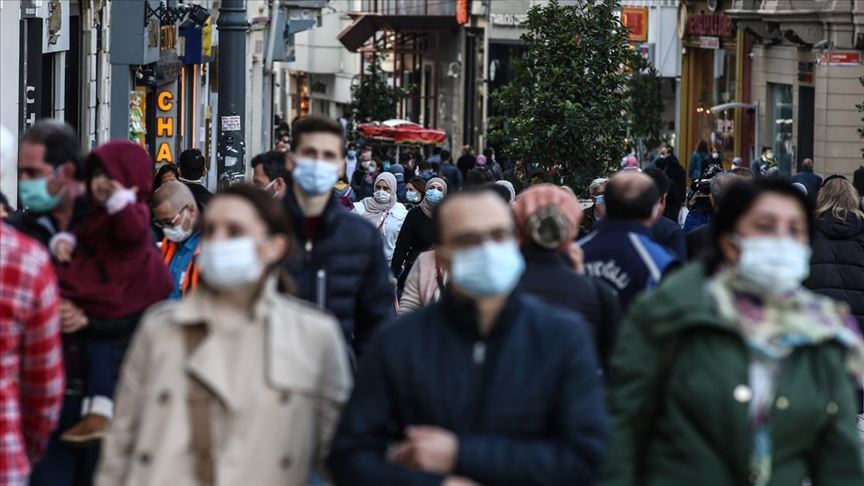Weekly number of COVID-19 cases decreases in Istanbul.
Turkey’s most crowded city, which also led in the number of infections, lagged behind the capital Ankara and third-largest city Izmir in terms of the average number of cases per 100,000 people.
This number was around 889 in Istanbul, while it was 1,003 in Ankara and 961 in Izmirfor the week between Jan. 22 and Jan. 28. Istanbul had 1,245 cases per 100,000 people in the preceding week. Figures show that Elazığ, Uşak, Iğdır, Tokat, Kırklareli, Rize, Kırıkkale, Isparta, Bayburt and Manisa saw the sharpest rise in the weekly cases.
Though the number may seem low, Turkey is embattled with a surge in the number of COVID-19 cases linked to the fast-spreading omicron variant. This month, the country broke an all-time record in daily cases exceeding 100,000, only to drop to around 88,000 over the weekend. Weekly figures also show that the number of provinces with at least more than 200 cases per 100,000 people rose to 74. In other words, only seven of the country’s provinces are relatively safe from a worsening pandemic.
Still, the pandemic is not as devastating as it was in the first two years. Health authorities say that although the virus prevails, the omicron variant is more dominant now and it mostly causes mild infections. Hospitalization rates and the number of people ending up intensive care are far lower compared to earlier waves of the pandemic, experts say.
Kırklareli leads with around 1,214 cases per 100,000 people, ahead of Kocaeli and Tekirdağ provinces, while Adıyaman and Van had the distinction of being the only two provinces with less than 100 cases.
Experts say that the current daily numbers are not as devastating as they were in the spring of 2021, when the cases reached around 60,000 and were more severe in nature, forcing the government to impose lockdowns. Yet, they are worried about the high number of people lacking booster shots required for full protection against omicron. So far, around 25 million people had their booster shots.

